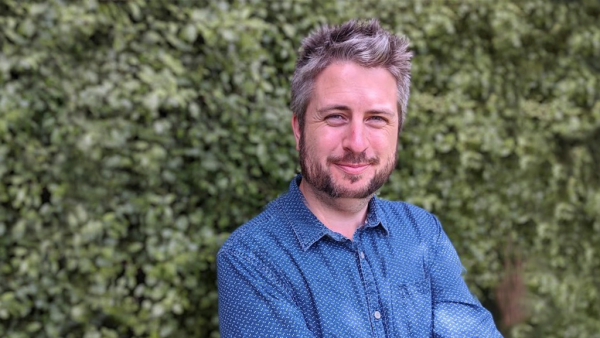Software start-up in regional NSW
Radiotherapy AI is being developed and commercialised by a medical physicist living and working in Wagga Wagga, in the NSW Riverina.
The digital revolution and more recent societal upheaval caused by the COVID-19 pandemic has dramatically increased the number of people choosing to live and work in regional and rural areas. Medical entrepreneur Simon Biggs is living with his young family in Wagga Wagga, NSW, five hours’ drive from Sydney, and has found some helpful ways to learn from and be inspired by other entrepreneurs. In particular, he spends time with mentors, and takes advantage of the online Guild of Entrepreneurs meetings.
“It’s all well and good having a great product and team, but if you want a company to endure for 10-plus years you need a network to get through the dips,” he says. “You can get those networks in rural, regional and remote locations.”

The founder of Radiotherapy AI, Simon completed his Bachelor of Science, Physics and Mathematics at the University of Queensland in Brisbane, followed by a Diploma of Education – when he temporarily thought he’d become a teacher – and then a Master of Applied Science and Medical Physics, which enabled him to work in a radiotherapy facility. His wife had grown up in a country town, so they were looking for an opportunity to move out of Brisbane to raise their children when the job as a medical physicist registrar in Wagga Wagga came up. “We love the rural environment, and the kids play with others in the street. If you’re doing stuff with software, country towns are great, particularly if you have children.”
Through his work over the next seven years, Simon realised artificial intelligence would be a great tool to help determine the exact targeted radiotherapy treatment areas for individual patients. He began working full-time on his start-up company Radiotherapy AI in May 2021. Since then, the software he has developed has been tested at Chris O’Brien Lifehouse in Sydney. “They employed one of the products, and were really happy with it – it was absolutely kicking goals,” Simon says.
Challenges
But setting out on a start-up adventure in a regional area is not without its challenges. “I was told early on that one of the key risk factors is getting lonely,” he says. Simon joined The Guild of Entrepreneurs, about half of whom live in regional Australia, and spent time with its founder and president, Alex Carpenter. “His goal is to pour his, and others’, knowledge into entrepreneurs and help them be successful,” Simon says.
Each Thursday evening, he jumps on a video call with the Guild in which everyone gives a 30-second pitch about their company, then discusses what they are struggling with at the moment. “Invariably someone can help with that problem,” Simon says. “They’ll say, ‘Oh this is how I dealt with that,’ or they know someone who can help.”
“Some of them are in New Zealand and they’re from all around Australia, but it’s just a group of people who are there to say, ‘How can we help make you successful?’”
As well, Simon spends regular time with his own mentors. One is a former colleague at the Riverina Cancer Care Centre, and Simon met another through his church. “He’s managed ginormous teams and multiple businesses. So I’ll have lunch with one advisor, and will go for a walk with another. It’s through meeting with those mentors I find most helpful.” He also has a mentor in a country town in New Zealand who reviews all his code.
Expanding the Radiotherapy AI team, Simon asked May Whitaker, head of physics and engineering at Chris O’Brien Lifehouse, to come on board as part-time co-founder. He’s negotiating with two others to join the growing start-up.
A vital step in Simon’s start-up journey – particularly in terms of developing a business model – was completing NSW Health’s free Commercialisation Training Program where he learned from a panel about the best business models to suit his business. He expects the Radiotherapy AI software to be approved for clinical use by October 2023.
Updated 2 years ago